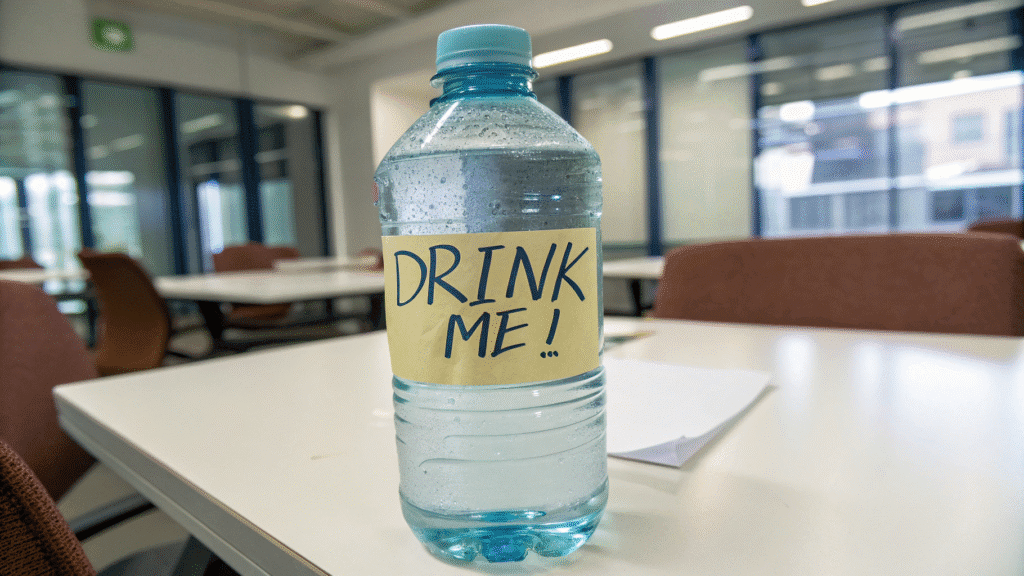Reduce Menopause Belly – The menopause has its share of annoyances, not least a bloated belly and bloating. And there’s clearly nothing to look forward to. The good news is that it’s possible to limit this type of discomfort by adopting a few good eating habits. Here’s our advice on how to deal with the problem of a swollen belly during menopause.

Reduce Menopause Belly : Why does the belly swell during menopause?
The human body is largely composed of water: between 60 and 70% for a young, healthy person. Independently of the menopause, aging has an effect on the balance of fluids in the body. One of the problems women encounter during the menopause is a swollen belly, but by changing the way you eat, you can reduce this phenomenon.
Reduce Menopause Belly : what foods should you avoid?
To limit the effects of menopause on the body, and in particular bloating and undesirable, uncomfortable bloating, it’s essential to limit certain foods, such as alcohol and salt.
Limit your alcohol intake
A well-known factor in belly weight gain during the menopause is undoubtedly alcohol consumption. Alcohol makes your face puffy and your belly swell. That’s why limiting your alcohol intake is one of the first changes you need to make to reduce menopausal bloating and reduce the risk of weight gain and the feeling of a bloated body.
At seven calories per gram, alcohol contains about as many calories as pure fat (which contains nine calories per gram). By comparison, a glass of wine can contain as many calories as four cookies! A pint of beer is generally close to the calorie intake of a slice of pizza.
By cutting down on your alcohol intake, you’ll not only combat bloating, but also reduce your calorie intake and better manage your weight. Alcohol abuse is dangerous to your health and should be consumed in moderation.
Reduce your salt intake
During the menopause, a diet too rich in salt can cause swelling and water retention. In many countries, the average daily salt intake is between nine and twelve grams, whereas the World Health Organization recommends no more than five grams a day.
So here are a few tips to help you reduce the amount of salt in your diet and try to say goodbye to bloated tummies and bloating during the menopause:
-Don’t add salt to your dishes when preparing your meals. If you’re worried about the result being bland, be creative by combining spices and herbs that can make your lunch or dinner absolutely divine;
-Don’t put salt on your table, leave it in your kitchen;
-Limit your consumption of salty snacks (potato chips, crackers, salted peanuts…);
-Choose low-sodium products, such as fresh fruit, vegetables, cereal products, and more generally all unprocessed products;
-Avoid products containing sodium glutamate, a preservative used in many countries.
A swollen stomach at menopause: what can you do to get a flat stomach?
To avoid a bloated stomach and lose belly fat during the menopause, there are several simple, natural solutions.
Increase your potassium intake
Potassium is one of the most effective minerals for counteracting bloating and a swollen belly during menopause. An essential nutrient for maintaining fluid and acid levels in the body, it also contributes to electrolyte balance and normal cell function. That’s why consuming enough potassium helps reduce swelling during menopause.
Where can I find potassium to limit belly bloating during menopause? Potassium is found in a wide variety of unrefined foods, such as raw fresh fruit (avocado, banana, red berries…), dried fruit (apricot, fig, grape, date…), legumes (soy, peas, lentils, kidney and white beans…) and oilseeds (walnuts, hazelnuts, almonds…).
A sufficient intake of potassium also helps reduce blood pressure in adults. So it’s easy to find potassium in food and increase your intake without too much effort.
Drink two liters of water every day

To give yourself the best chance of a flat stomach during the menopause, it’s essential to drink at least two liters of water a day, without waiting until you feel thirsty.
Why is drinking so much water essential during the menopause? When you drink too little liquid in a day, your body stores water in order to fight dehydration, and that’s when your belly swells! That’s why it’s imperative to drink enough water every day and hope to lose weight during the menopause.
But don’t confuse a flat stomach with weight loss. While the sensation of a swollen belly can be quickly eliminated by adopting the right gestures and hoping to regain a flat stomach, losing abdominal fat in menopausal women is part of a long-term approach that involves adopting a healthy diet without delay!
In addition to losing belly fat at menopause, by adopting these healthy habits, you’ll also see changes in your skin. A diet rich in healthy fats can help reduce the dry skin associated with menopause. Drinking enough water every day adds moisture to the skin. These gestures, coupled with menopause care, are essential for maintaining radiant, healthy skin.
A swollen belly during the menopause: the right gestures to remember and adopt
To avoid a swollen belly during the menopause, here are a few tips to apply:
-Adopt a special menopause diet
-Remove as much salt as possible from your diet
-Increase your potassium intake
-Limit your alcohol intake
-Remember to drink two liters of water a day
While menopause can bring uncomfortable changes, it doesn’t have to define your well-being. By focusing on balanced nutrition, regular movement, and mindful lifestyle habits, you can successfully reduce menopause belly and regain confidence in your body. Small, consistent steps truly make the biggest difference.





